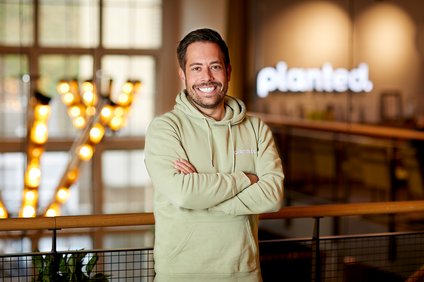People - 27.04.2016 - 00:00
Support beyond the pharmacy visit
Dirk Volland has identified a gap in the healthcare system: the continued care of patients after they have left the pharmacy, clinic or doctor’s surgery. Using a system developed as part of his doctorate, he hopes to close this gap.

19 November 2015. "It is paradoxical that patients get no structured help when they need it the most," explains Dirk Volland, "namely when they leave the pharmacy or doctor's surgery." Whilst in such institutions, a patient is guided through predefined processes by healthcare professionals, doctors or pharmacists, but once at home they are frequently left to their own devices. They also find themselves confronted with incomplete information and contradictory opinions.
Improving communication between pharmacists and patients
In September 2015 Dirk Volland acquired his Ph.D. in economics for his thesis entitled "Extending Pharmacist-Patient Communication with ICT". In it he describes an information system that facilitates communication between pharmacist and patient and thus support through a treatment process by means of personal contact. In cooperation with 21 Swiss pharmacies, he developed a system that permits structured ongoing care based on a specific medication or indication.
"Blueprint" created
"I saw my doctorate as an opportunity to get to grips with one specific topic over a set period of time and in doing so to develop skills that will serve me beyond the basic knowledge gained during my studies," says Dirk Volland, explaining his motivation. His aim was to resolve the asymmetry between care relationships in healthcare institutions and those after a patient has left these institutions. In a design process that spanned several development and evaluation phases, Volland derived design principles for the system. At the same time, he examined the communication between pharmacist and patient and the value of the system for various user groups. The information system described, and its implementation and realisation in the pharmacy context, now represent a "blueprint" for resolving this asymmetry.
Closing gaps in the healthcare system
Today's common illnesses are frequently linked to patients' behaviour in everyday life – for example too little exercise, an unbalanced diet or failure to stick to therapies. "Changing this behaviour without professional support from trusted figures in our healthcare system is very difficult," says Dirk Volland. "I hope my work will contribute to closing this gap in the healthcare system."
At the interface with research
Dirk Volland sees his future career as somewhere on the interface with research, but not in an academic role. Using his research results as a basis, "a growing team is currently working on turning the 'minimum viable product' – i.e. a product limited to the core functionalities needed to test its primary objective – into a market-ready product."
More articles from the same category
Discover our special topics











